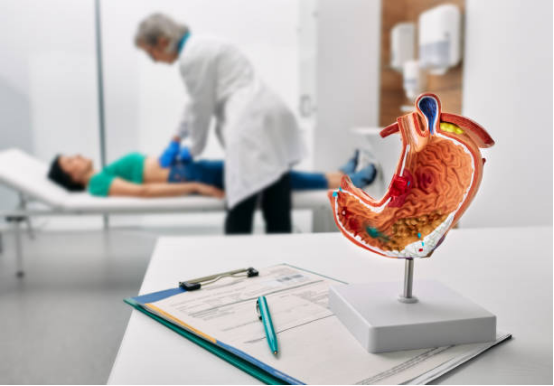10 Tips to Choose the Best Gastroenterologist Near Me
Introduction: Digestion is one of the most important processes in the body. However, sometimes the functioning of the digestive system can be disturbed by infections, unhealthy diet, or underlying health conditions. In such cases, digestive issues must be addressed after consulting a gastroenterologist who specializes in diagnosing and treating diseases of the stomach, esophagus, gallbladder, pancreas, bile ducts, colon, or intestines. The specialist can recommend options to effectively treat and cure these problems.
Introduction: Digestion is one of the most important processes in the body. However, sometimes the functioning of the digestive system can be disturbed by infections, unhealthy diet, or underlying health conditions. In such cases, digestive issues must be addressed after consulting a gastroenterologist who specializes in diagnosing and treating diseases of the stomach, esophagus, gallbladder, pancreas, bile ducts, colon, or intestines. The specialist can recommend options to effectively treat and cure these problems.

1. Ask Your Family Doctor:
Start by asking your family doctor or primary healthcare provider for a referral. Your family doctor knows your medical history, symptoms, and current treatment plan, and can direct you to the specialist who best fits your needs. Asking "who is the best gastroenterologist near me?" is the first step in finding a suitable specialist.
2. Recommendations:
If you're comfortable discussing your health issues with family, friends, or colleagues, seek their recommendations. A doctor recommended by people you trust can build a sense of reliability and credibility. Personal referrals often lead to better doctor-patient relationships.
3. Understand the Doctor’s Credentials:
Research the credentials of any gastroenterologist you're considering. Make sure the doctor is board-certified, which guarantees they have undergone the necessary training and passed rigorous exams in their specialty. This will help you ensure that the doctor has the proper qualifications to handle your case.
4. Know the Doctor's Experience:
The more experience a doctor has, the higher the chances of a successful treatment. Learn how many patients with similar health conditions the gastroenterologist has treated, and verify if the doctor has completed an accredited fellowship training program. Experienced doctors often have a better understanding of complex cases.
5. Know the Quality of the Hospital:
The quality of the hospital where the gastroenterologist practices is a key factor. Hospitals with high ratings typically provide better care, which can lead to quicker recovery and fewer complications. Also, consider the hospital's location and its proximity to your home for convenience.
6. Analyze the Doctor’s Communication Style:
The doctor’s communication style is very important. It directly affects your comfort level in discussing your health concerns. During your first visit, ask questions and see how the doctor responds. Choose a doctor who listens to your concerns, explains treatment options clearly, and respects your decisions.
7. Read Patient Reviews:
One of the best ways to assess a doctor is by reading reviews from other patients. Look for feedback on the doctor’s bedside manner, how they interact with patients, and the helpfulness of the office staff. Reviews can give you a sense of what to expect and whether the doctor meets your expectations.
8. Insurance Coverage:
Make sure the gastroenterologist is covered by your health insurance plan. While it’s important to choose a doctor based on their credentials and experience, you also want to avoid unnecessary out-of-pocket expenses. Confirm that the doctor accepts your insurance before making an appointment.
9. Some Practical Considerations:
When searching for the best gastroenterologist near you, also consider practical factors like the doctor's office hours, location, and the efficiency of the staff. A helpful and friendly office staff can make a big difference in your overall experience.
10. Further Research:
To make a well-informed decision, it's a good idea to research the gastroenterologist further. Prepare a list of questions for your first visit to help you evaluate whether the doctor is the right fit for your needs. The more research you do, the more confident you'll be in your choice.
Disclaimer: The content of this article discussing symptoms, treatments, health conditions, and side effects is for informational purposes only. It should not be interpreted as professional medical advice. Always consult with a licensed healthcare professional before making any medical decisions.